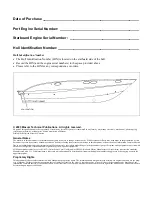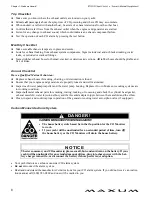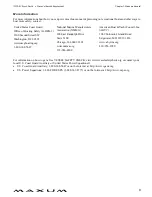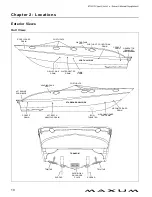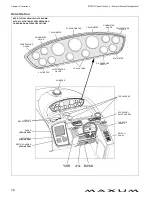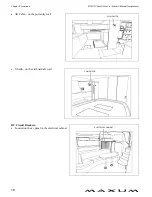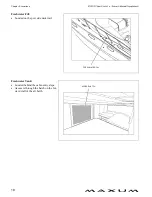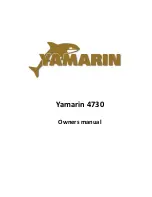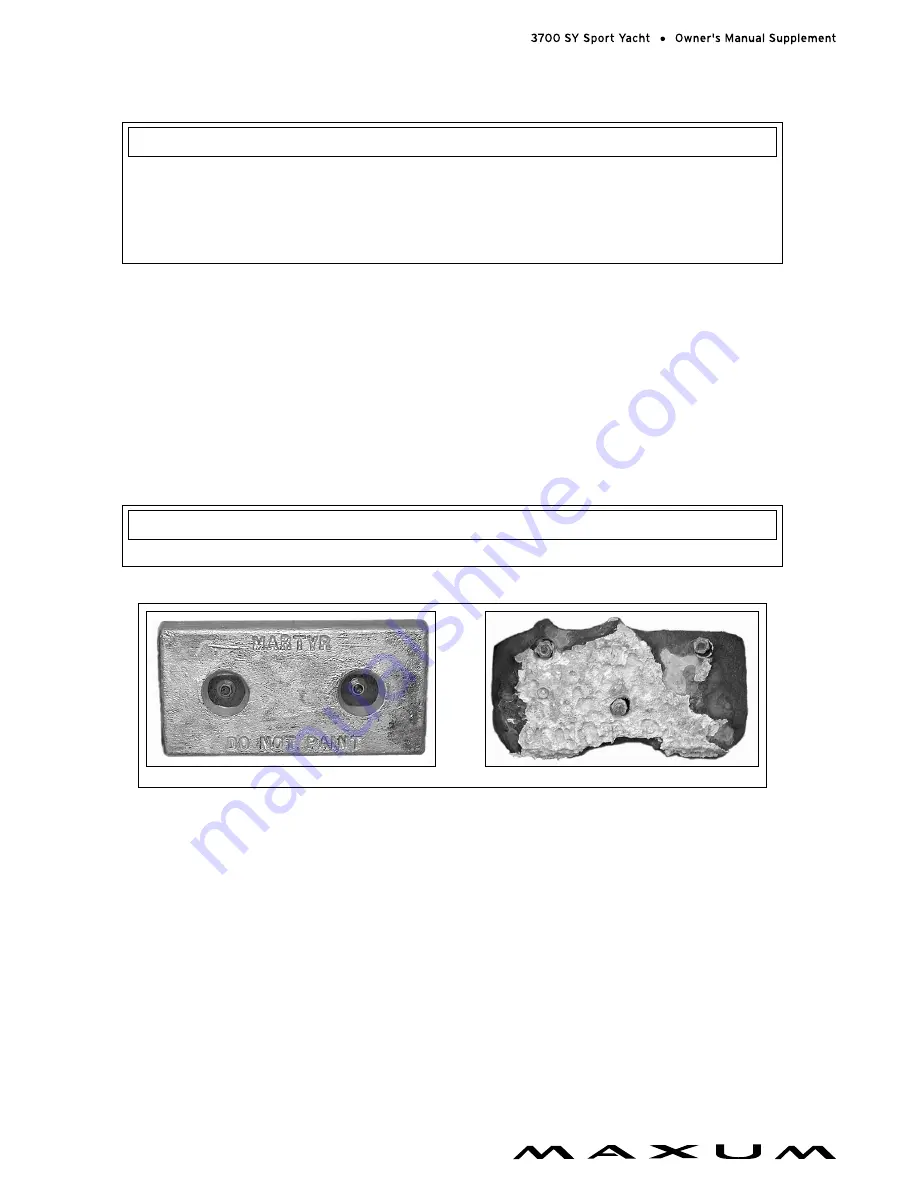
Chapter 1: Welcome Aboard!
4
Special Care For Moored Boats
•
Whether moored in saltwater or freshwater, your yacht will collect marine growth on its hull bottom.
•
This will detract from the yacht’s beauty, greatly affect its performance and may damage the gelcoat.
•
There are two methods of slowing marine growth:
1. Periodically haul the yacht out of the water and scrub the hull bottom with a bristle brush and a solution of soap
and water.
2. Occasionally re-paint the hull below the waterline with a good grade of anti-fouling paint.
Sacrificial Anodes (Zincs)
Your yacht features sacrificial anodes (zincs) to protect underwater metal parts from excessive deterioration. Check
the zincs regularly and replace them if they have deteriorated more than 70%.
There are many factors that affect the rate at which the zincs deteriorate, including:
•
Water temperature
•
Salinity
•
Water pollution
Stray electrical current from the yacht or dock may cause complete deterioration in just a few weeks. If there is rapid
zinc deterioration, measure the electrolytic corrosion around your yacht with a corrosion test meter. If the zincs are
not bonded correctly, they will not provide protection.
•
To help seal the hull bottom and reduce the possibility of gelcoat blistering on moored boats,
apply an epoxy barrier coating. The barrier coating should be covered with several coats of
anti-fouling paint.
•
Many states regulate the chemical content of bottom paints in order to meet environmental
standards. Check with your local dealer about recommended bottom paints, and about the
laws in effect in your area.
NOTI CE
Do not paint between the zinc and the metal surface it contacts and do not paint over the zincs.
NOTI CE
NEW SACRIFICIAL ANODE
DETERIORATED SACRIFICIAL ANODE
Summary of Contents for 3700 SY
Page 1: ......
Page 2: ......
Page 70: ...Chapter 12 Electrical System 64 Wiring Diagrams Diesel Engine Harness...
Page 71: ...Chapter 12 Electrical System 65 Auxiliary Electrical Harness...
Page 72: ...Chapter 12 Electrical System 66 Direct Current Electrical Harness...
Page 73: ...Chapter 12 Electrical System 67 Alternating Current Electrical Harness...
Page 77: ...Owner s Notes...
Page 78: ...Owner s Notes...
Page 79: ......
Page 80: ......



